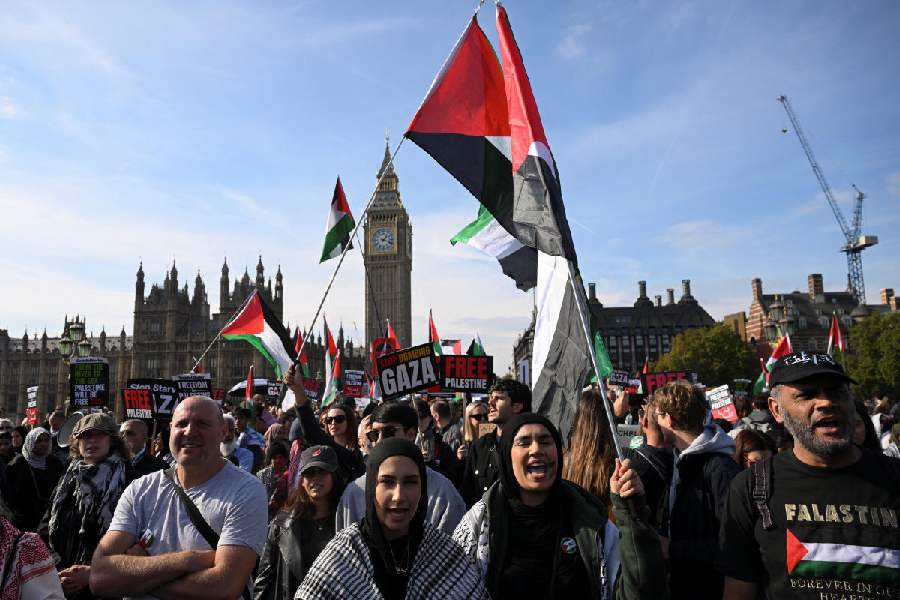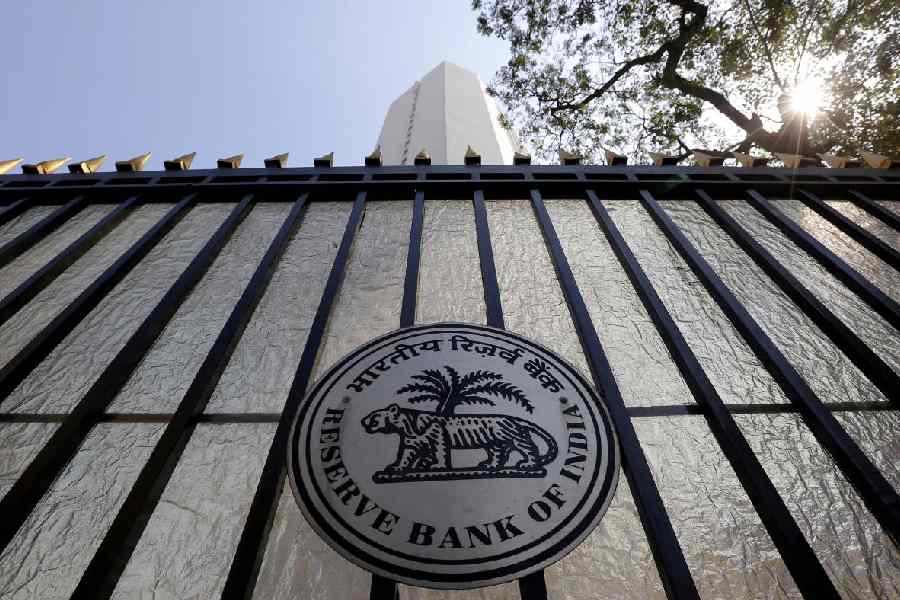It is reassuring that despite all the perennial gripes of Britain having experienced an irreversible decline — not to mention London’s emergence as a crime centre of Europe — there are a few institutions that remain gloriously unchanged. Confining my observations to my fleeting engagements with native society, I would like to single out two pages from the quality dailies for special mention: the Obituaries page and the columns containing the Letters to the Editor. These two pages remain obligatory reading for me, particularly when poring over The Daily Telegraph at breakfast in my club in London.
To cut a long story short, in the midst of the huffing and puffing over Donald Trump’s attempts to secure a peace deal — in an earlier, less transactional age, it used to be called a ‘settlement’ — in the Middle East, a reader with a keen eye on the ridiculous asked what would happen to the ritual Saturday outings of the aggrieved. The reference was to the tiresome habit of young people, too many of whom were seen sporting black-and-white keffiyeh — Boris Johnson recently remarked that these could well be mistaken for a dishcloth — marching each Saturday for the past two years demanding freedom for Palestine through a global Intifada.
The letter writer assumed that if the US president’s quest for the Nobel Peace Prize ensured the killings ended in Gaza and elsewhere in Israel, it would deprive the likes of the irritating Greta Thunberg and her clones of a cause. In that case, they would spend their Saturday afternoons being normal.
I was among those that Saturday, October 11, who assumed that since the entire saga that had begun two years or so ago with the deplorable Hamas attack and massacre of civilians in Israel was approaching endgame, the ostentatious displays of feigned indignation would cease. The week before, on the day Jews were observing Yom Kippur, the son of a migrant doctor from Syria, bearing the evocative name, Jihadi of Damascus, had gone on rampage near a synagogue in Manchester and knifed two people before he was gunned down by the police. Amid the outrage over the targeted attack on the Jewish community, it had been suggested that the pro-Palestine demonstrators postpone their collective walk to another day. The appeals fell on deaf ears, and the friends of Hamas in Londonistan made it clear they didn’t regard this murderous display of anti-Semitism as an embarrassing offence.
By the time my wife and I went to a lovely Austrian restaurant just off the Strand, it was clear that faith in London experiencing a Palestine-free Saturday was misplaced. What we were now witnessing wasn’t merely another demonstration but a monster demonstration of people determined to tell Trump that the quest for a Palestine that stretched ‘from the (Jordan) river to the (Mediterranean) sea’ would continue without any interruption.
Monday’s TV was full of Trump, first addressing the Israeli Knesset in Jerusalem and wallowing in the national celebrations in Israel over the release of the 20 hostages. Immediately thereafter, the US president flew to neighbouring Sharm El-Sheikh in Egypt where the Arab nations, including Qatar, Saudi Arabia and the United Arab Emirates, and Turkey signed an elaborate document that would supposedly usher in a New Middle East.
President Trump isn’t quite the flavour of the season in India thanks to his attempted bullying over India’s sovereign decision-making. Consequently, there was no discernible interest in the strategic circles of India over Trump’s Nobel bid. This indifference was myopic and is plain wrong.
What Trump has tried to do, using the strategic clout of the US to secure the acquiescence of the countries in the region, is audacious.
First, like a man whose foremost interest is business, he has attempted to persuade the region that its future lies in the Arabs, Turks and Israelis promoting a common agenda of economic prosperity. This implied that the Arab states would shed all remaining inhibitions and recognise Israel as a legitimate player in the Middle East. In his first term, Trump had initiated the Abraham Accords, bilateral agreements between the Arab states and Israel. The agreements that are outstanding are with Qatar and Saudi Arabia. If, in the coming months, these can be negotiated, the success of Trump’s peace deal may be assured.
Secondly, unlike the Oslo Accords of 1993 when the former US president, Bill Clinton, tried to address Palestinian grievances by the future creation of a Palestinian state with East Jerusalem as the capital, Trump has learnt from the past. The Oslo process came unstuck because Yasser Arafat couldn’t muster the political courage to disregard the Palestinian extremists such as Hamas and Palestinian Islamic Jihad. This time, the Trump deal did assure some self-determination for the Palestinians in the form of the Palestinian National Authority but there was absolutely no mention of the Palestinian state that a clutch of European countries and Australia had rushed to recognise at the United Nations last month. Indeed, the subtext of the Trump deal was that a future Middle East settlement could be negotiated bypassing the Palestine question.
In private, most of the Arab states agree that the Palestinians and the Palestine question are destabilising factors in the region. The destruction of Israel — a pipe dream that has linked the entire Palestinian leadership from the Grand Mufti, Amin al-Husseini, to the late Yahya Sinwar — is an unreal proposition today regardless of what the situation was at the time of the formation of the Jewish state in 1948. But what the moderate Arab states fear is not Israel but an uprising of its own people over Palestine.
It is now becoming increasingly apparent that the ‘Free Palestine’ chant that is heard in the narrow lanes of East Jerusalem or in Hebron on a Friday afternoon isn’t only about liberation from Israel. Hamas knows that it doesn’t have the ability to recreate the seven-front war it has envisaged after October 7, 2023. Three of its foremost allies in the anti-Israel war — the Hezbollah in Lebanon, the Ba'athist regime in Syria, and the Revolutionary Guards in Iran — have either been crippled or destroyed. If Trump can force Qatar and Turkey to stop their financial assistance, Hamas will become a zero.
That is why it needs to ensure the war in Gaza is joined by a conflict in the West Bank. That is why the London demonstrators will keep going.
Palestine has become a code for a larger reordering of society.










